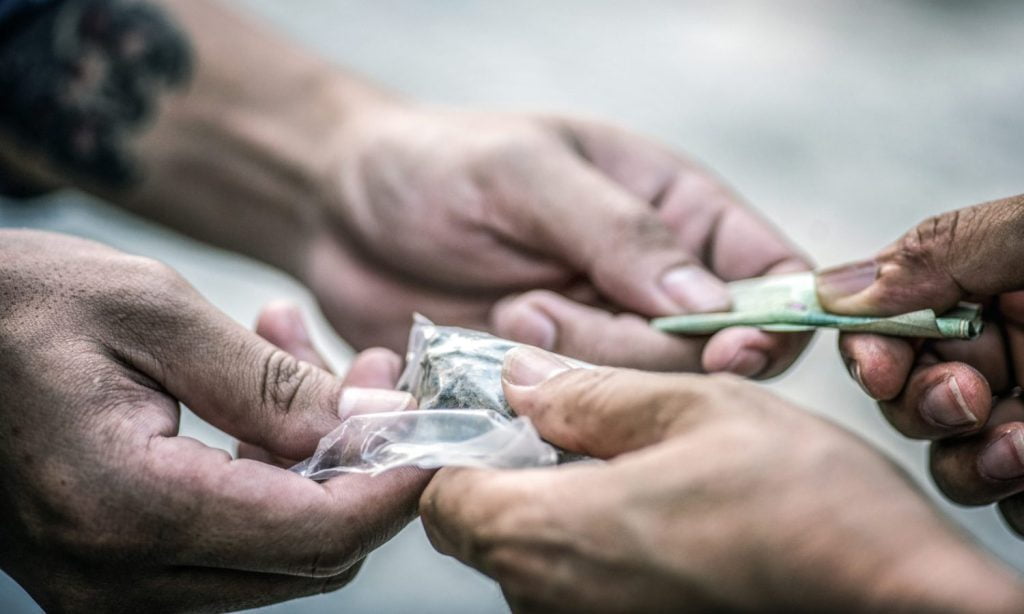
Thailand’s FDA recommends removing cannabis from the controlled substances list
This article originally appeared on Cannabis.net and has been reposted with Permission.
In Asia, a region notorious for its tough drug laws, Thailand is making waves by becoming the first country in the entire region to legalize the use of cannabis in both medicine and food and cosmetics. They’re taking it one step at a time while neighboring countries still impose deadly penalties on anyone caught using or selling the drug.
Just this week, Thailand’s Food and Drug Administration (FDA) said it would propose removing cannabis from the controlled substances list, Bloomberg reports. If the board agrees, the next step would require Health Minister Anutin Charnivirakul’s approval before the law becomes active in Thailand. If this goes according to plan, it would mean that Thai citizens could enjoy easier access to cannabis without the worry of going to jail or having to pay hefty fines.
Photo by Florian Wehde via Unsplash
“If we are able to decriminalize marijuana, we will be able to benefit from the whole plant and not just parts,” said Within Sariddeechaikool, the FDA’s assistant secretary general. “The flower buds and seeds could be used economically and legally.” Thailand has taken small steps to decriminalize cannabis and still abides by some laws restricting the cultivation and harvesting of the crop, even if it has significant economic benefits could. If cannabis is still considered a narcotic, people cannot own it even though it opens up commercial access to the plant.
“While the law change will allow the purchase, sale and use of all components of cannabis, recreational use will likely remain controlled as marijuana extracts with higher tetrahydrocannabinol levels, which get people high, continue to be regulated,” said Chaiwat Sowcharoensuk, analyst at the Krungsri research company. “Manufacturers of marijuana-based soaps, beauty products and cosmetics are likely to benefit the most from decriminalization.”
After a long awaited time
Thais have been using cannabis to treat various diseases since ancient times and it has also been used in traditional medicine. The fibers of the plant have since been used to make rope and clothing.
However, in recent decades, the plant commonly known as ganja has been controversial both in Thailand and other countries in Southeast Asia. During the 1960s, a period of cultural and moral reform in the United States, where psychedelics were widely used after the wars in Southeast Asia. Thailand was home to US bases for soldiers fighting in Vietnam and it was also the official vacation destination for soldiers. Due to US-Thailand relations, they had a “gentleman’s agreement” whereby American bases in Thailand were part of the Royal Thai Air Force and operated by local officers. They had unrestricted access to the bases, although the US retained command of its officers serving in the kingdom.
The time American soldiers spent in Thailand shaped it culturally. Not only did they contribute to the hospitality and nightlife culture, but they also experimented with recreational cannabis use during this period. There are some reports that US troops began using cannabis after their arrival in the 1960s, although there are no official records of this.
RELATED: Asian Americans welcome marijuana legalization despite cultural hurdles
By 1979, the Narcotics Act was officially enacted by the Thai government, banning cannabis use and stating that the cannabis plant and all of its derivatives were Category 5 narcotics, or in other words, prohibited substances. That didn’t stop Thais from consuming it illegally and foreign tourists from finding their own sources (it was a popular hippie destination in the region for many decades), although many locals lobbied the government to stop its use, particularly for legalize commercial and personal use.
 Photo by athima tongloom/Getty Images
Photo by athima tongloom/Getty Images
In February 2003, then Prime Minister Thaksin Shinawatra launched a drug war. Of course, it aimed to stop the drug trade, which was widespread at the time. But it had no positive results, with around 2,800 arbitrary extrajudicial killings taking place in the first 3 months. Unfortunately, an official investigation in 2007 found that more than half of those killed were not even related to drugs.
By 2018, the government finally started taking action to remove cannabis from the list of banned drugs. An ordinance was passed allowing the legal cultivation of hemp for non-commercial and industrial purposes, such as for use in research, development, and domestic cooking. In 2019, major steps came with the amendment of the Narcotics Act; it legalized the use of medical marijuana, but with restrictions. The government has since continued to work with the Department of Health (MOPH) as well as the FDA so that cannabis products can be reclassified and new regulatory legislation would help make cannabis a viable source of income for the economy.
RELATED: Malta is on the verge of becoming the first country in Europe to legalize weed
In August 2019, foods, medicines, cosmetics, and beverages containing hemp were removed from the Narcotics Act. By this time, cannabis was also being taken seriously by government officials and political parties. In December 2020, a MOPH notice published in the State Gazette indicated that removing cannabis from the Narcotics Act would remove almost all parts of the cannabis plant, as well as the hemp plant.
Keep in mind that foreign participants will still not be allowed to participate in any cannabis business until the 5-year ban on foreign participation has peaked from February 2019. Until then, only members of the Thai government and their official partners can benefit from these laws. However, that can’t stop you from enjoying some CBD drinks at a Thai coffee shop.
This article originally appeared on Cannabis.net and has been reposted with Permission.

Post a comment: